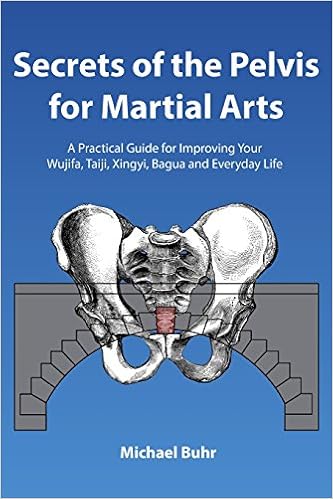Note: A left knee problem continued to annoy me with muscle tightness and weakness. Small gains with physical therapy.
* We talked about my belligerent attitude in the previous class last month. I'm still not open. Still resistant. Still trying to control. Still trying to juggle 10,000 balls. Still not allowing. Still have a huge trust issue. Still not open to the experiential. Still filtering "feeling" according to analytical processes. Still feeling what I unconsciously deem is acceptable to feel and blocking what I don't want to feel.
* Don't try to create connection! In trying to feel connection, you are reinforcing the block of locked muscles which will feel to you according to how you think connection would feel without ever having felt it before! What you want to do is isolate each muscle. Get each muscle to relax and let go and don't think about connection. Don't "want to" feel-develop. After you can isolate and relax throughout the body, then the connection of not-looking-for-connection will show up spontaneously and naturally. The actual feeling will be something completely other than whatever you could possibly think it might feel like before you were capable of feeling it.
* Question: When I roll the trochanters forward while standing upright (knees only slightly flexed, not even a mini-squat) and then move into a squat I feel that the pelvic complex is locked in. However, if I squat first, and open my butt as if my butt cheeks were pushed apart, then I notice the trochanters rolling more upwardly. Due to the angle change between pelvis and trochanters, the trochanters turn more upward as if the pelvis were sinking between the two. I notice that this loads more weight into my quads. Is this the path I want to follow/develop?
Answer: Yes, however, notice your language uses a tone of forcing it to happen. Can you have more of an experience of allowing opening, accepting, letting go, where the opening originates within you rather than an external forcing opening you?* I really need to pay attention to how my underlying attitude is reflected in my language. "Force", "have to", "made", etc. Stop using force words.
(Note: I believe this experience is a breakthrough for me even if it is more of a mechanical understanding-feeling than the "holy grail" of feeling that continues to elude me.)
* Our instructor introduced a new method that isolates and exercises the vastus medialis obliquus (VMO) which is a key muscle to develop for internal work. Essentially, this is a single leg, mini-squat. Although this sounds easy, there are many details involved to really feel the weight loading the VMO. There are many ways to "cheat", that is to do it wrong. Here are a few of the cheats:
- To rise up out of the squat by raising the opposite hip. Don't do this.
- To engage the lower back to bear the weight. Don't do this. Rather, relax the lower back and let the squatting leg bear all the weight.
- To keep both legs close to the center line. This pinches the pelvic floor which keeps the weight out of the squatting leg. Don't do this. Rather, extend the empty leg further than shoulder-width away from squatting leg.
- To pull in the "empty" extended leg. Don't do this. Keep the empty leg extended and toes pointed up. Let the heel drag along the ground.
* Question: When will my body be ready to begin learning fajing?
Answer: I can't teach you fajing until after you completely relax the lower back and pelvic floor. If these areas are not soft and supple, no more holding, then what you do will be contrived and forced and you could wind up hurting yourself. Fajing feels like stretching a rubber band and then letting go of one side. You feel the stretch and then let go.* And so the introductory level internal gong-fu process is to get the body to relax and release where it is holding; to soften the hardness. Only after this has been achieved to a particular level where connection starts showing up, then you can begin training in earnest; training how to develop and use connection. Even then fajing training comes later in the process.
Further reading:
Introductory article explaining this "Journal Notes" series: Zhan Zhuang Training Journal
Previous article in this series: Say Hello to Your Pelvis: Journal Notes #138


No comments:
Post a Comment